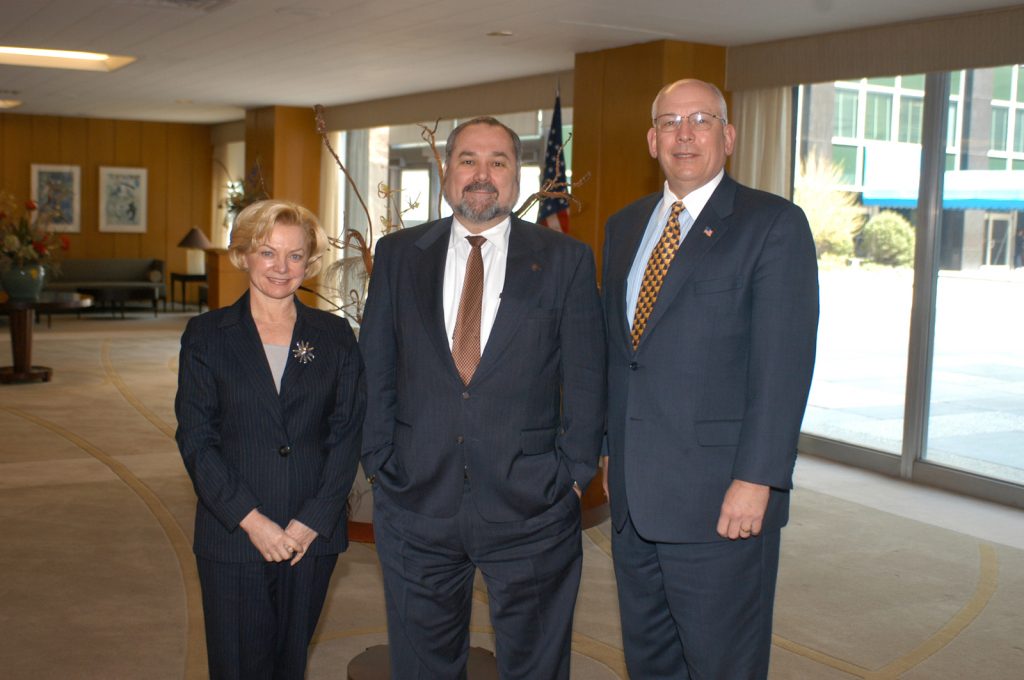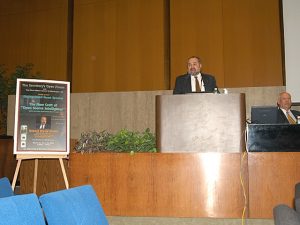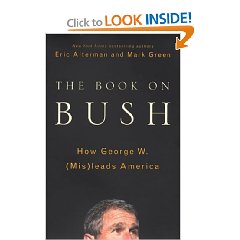His early analysis in the book, on the dangers of supremacist ideologies and the curious alliance between religious fundamentalists (zealots who know nothing of the real world) and market fundamentalists (immoral capitalists who care nothing of the real world) is spot on. He is articulate and effective in writing about the manner in which this extremist ideology, “we are always right, they are always wrong”, in endangering not just American ideals, but American survival.
He touches on but fails to capitalize on the urgency of splitting the moderate Republicans (I am one of them) from the extremist base, perhaps by funding the foundation of a new party, the Fiscal Conservatives (moderate Republicans and Southern conservative Democrats).
His chapter on the “war” on terror and his condemnation of treating terrorism as a war, with the wrong tools, wrong approach, and wrong effects from our well-intentioned but uninformed behavior is also powerful in its common sense. He notes that this “war” (I have called it a six-front hundred-year war that *we* started in reaction to 9-11, without thinking strategically) has killed more civilian bystanders than the attack on the World Trade Center, and simultaneously super-charged anti-American sentiment around the world–including among the British!
He is subtly but scathingly critical of Congress for abdicating its responsibility to balance the power of the Executive, and documents the careless manner in which the Patriot Act was brought about (Bush can also confiscate pleasure boats with Cuban charts on thsm).
The middle of the book examines, with a capitalist's critical eye, the wasted hundreds of billions on Iraq, and how that money might have been better used to address the complex emergencies in Africa, Central Asia, and South Asia (one might also add the tri-border region in Latin America, which is about to explode).
Soros is, I believe, in error, when he concludes that the forthcoming election provides an opportunity to deflate the bubble of American supremacy. First off, the Republicans are taking the election seriously, the Democrats are not. Second off, the Kerry team has proven completely incapable of devising a shadow government, a coalition cabinet, and a balanced budget within which to make policy deals with moderate Republicans and others such as Independents and Greens.
In the next section Soros illuminates with a mix of previously state ideas, i.e. the political institutions needed to protect the common good have not kept up with the marketplace (Kissinger agrees), and new thoughts, among which I found the emphasis on restoring the definition of sovereignty to mean sovereignty of the people, not the state, to be the most compelling and also the most consistent with the many other books I have reviewed for Amazon, among which Jonathan Schell's book, “Unconquerable World” stands out.
Soros' other remarkable idea, which I think he should seek with $10M if he can spare the change, is that there is an urgent need for a D6 of developing countries to counter the G8 of First World industrial powers. He identifies Brazil, Mexico, Indonesia, Nigeria, and South Africa. I would add China and Argentina and make it D8 instead.
Finally, he concludes with a strong indictment of how foreign aid is administered today, less than 45% of it actual reaching needy recipients (versus 85% for his own programs), he touches on the importance of ensuring that the people, not the corrupt elite, get the benefits of any nation's natural resources, and that only an open society, in which citizens can and *must* (are *required to*) think for themselves, is a potentially prosperous and secure society.
So, concluding this review, I have to say, Bravo, Soros, but why isn't your money where your book suggests it should be? Let's Talk, America, for example, or the National Budget Simulation Project, or the Co-Intelligence Institute, or any of hundreds of bottom-up efforts to shed light on public policy, to create public intelligence that can both inform citizens and hold officials accountable for betraying the public trust–why are they not being noticed by Soros?
American has been radicalized by the Bush Administration, which will probably win in 2004 and further radicalize both America and the world. There will be multiple variations of 9-11, including at least one hijacked Pakistani submarine firing a missile into Australia. We don't need mobilization, we need education. We need a National Intelligence Council in the “seven tribes, seven standards, seven issues” sense, one that relies on open sources of information to ensure that every American understands what is at stake here, and how their ignorance not only feeds terrorism, it feeds the supremacist ideology of neo-conservativism that is terrorism's best friend.
Soros has come full circle, and now stands with Thomas Jefferson, who said “A Nation's best defense is an informed citizenry.” So, when does school start?












